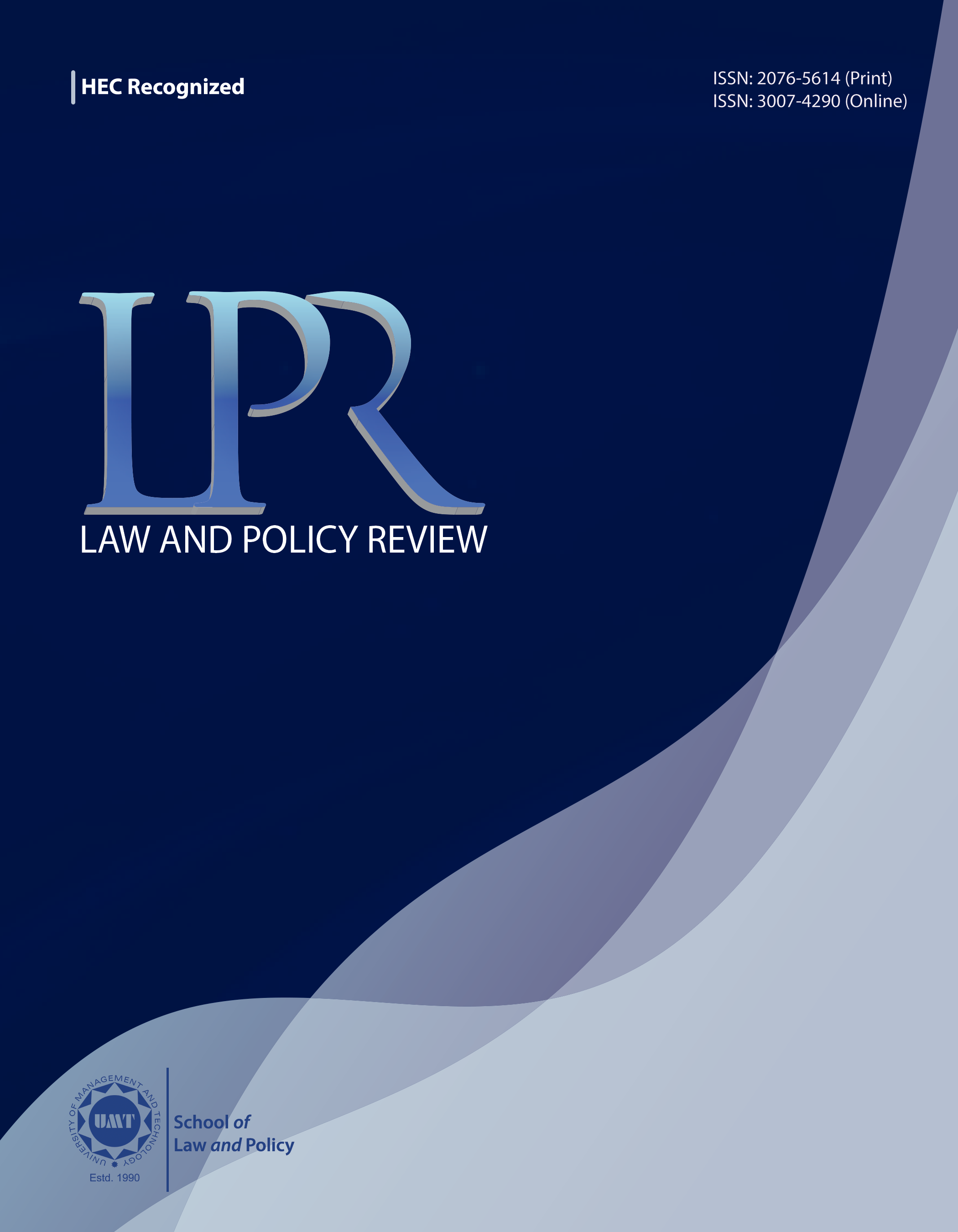Differences Related to Zakat Between the Islamic System and the Pakistani Legal System
Abstract
 Abstract Views: 0
Abstract Views: 0
This research deals with the study of Zakat in the Islamic system and in the Pakistani legal system. It comparatively analyses both these systems to highlight the main differences between them. In doing so, initially, it discusses the basic principles of Zakat in Islam, such as nisab (minimum wealth) and the rate of Zakat on different items, its religious and economic importance, as well as its exemptions. Later on, its legal development in the Pakistani legal system will be discussed. That legal development is related to the period before and after the formation of the Zakat and Ushr Ordinance 1980. Finally, the differences between these systems are being discussed to amend the Pakistani laws to make them consistent with Islamic law
Downloads
References
Abaadi. (2005). Awn Al Ma’bwodala Sharh Sunan Abi Dawood. Dar Ibn Hazm.
Allami, A. W. (2015). Principlizing Islamic zakat as a system of taxation [Doctoral dissertation, Brunel University]. Brunel University Research Archive. http://bura.brunel.ac.uk/handle/2438/12238
Dr. Mahmood-ur Rehman Faisal v. Government of Pakistan_ (PLD 2013 FSC 55).
Farooq Brothers v. United Bank Limited__ (PLD 2023 FSC 47).
Hudson. (2009). The law of finance. Sweet and Maxwell.
Iqbal, M. M. (2015). Inclusive growth with zakat. The Pakistan Development Review, 54(4), 997–1010.
Maudoodi, A. A. (1970). Ma’ashiyat-e-Islam (Urdu). Islamic Publications.
Mirza, M. A. (1960). Dr Khalifa Abdul Hakim (Swaneh or Adbi Khidmaat) (Urdu). Idara Sqafat-e Islamia.
Miss Farzana Asar v. National Investment Trust__ (PLD 1991 Karachi 335).
Mohammad, F., & Anwar, M. (1991). Prospects of poverty eradication through the existing “Zakat” system in Pakistan’. The Pakistan Development Review, 30(4), 1119–1129.
Powell, R. (2010). Zakat: Drawing insights for legal theory and economic policy from Islamic jurisprudence. University of Pittsburgh Tax Review, 7(43), 43–101.
Qaradawi, Y. A. (2002). Fiqh Al Zakat. Mo‘asasat Al Risalah.
Samiullah, M. (1982). Prohibition of Riba (interest) & insurance in the light of Islam. Islamic Studies, 21, 53–76.
Samra, U., & Saddiqui, M. S. (2021). System of Zakat and Ushr – A paradigm shift after eighteenth amended to the constitution of Pakistan. Journal of Islamic Thought and Civilization, 11(1), 412–420. https://doi.org/10.32350/jitc.111.22
Shaikh, S. A. (2015). Welfare potential of zakat: An attempt to estimate economy wide zakat collection in Pakistan. The Pakistan Development Review, 54(4), 1011–1027.
Suo Motu Action Regarding Combating the Pandemic of COVID-19__ (2020 SCMR 930).
Usmani, M. T. (2013). Zakat kis tra ada krain [Urdu]. Centre for Islamic Economics.
Zahra, M. A. (2004). Usul Al Fiqh. Al Jawhara.
Copyright (c) 2025 Rasham Armab Saikhu

This work is licensed under a Creative Commons Attribution 4.0 International License.
LPR follow an open-access publishing policy and full text of all published articles is available free, immediately upon publication of an issue. The journal’s contents are published and distributed under the terms of the Creative Commons Attribution 4.0 International (CC-BY 4.0) license. Thus, the work submitted to the journal implies that it is original, unpublished work of the authors (neither published previously nor accepted/under consideration for publication elsewhere). On acceptance of a manuscript for publication, a corresponding author on the behalf of all co-authors of the manuscript will sign and submit a completed the Copyright and Author Consent Form.





